Hassan Ibrahim | Khaled al-Jeratli | Reem Hamoud
The closure of the ballot boxes in the Turkish presidential elections in May 2023 or the municipal elections at the end of March did not make a difference in the lives of Syrians in Turkey as they had hoped. The tightening of conditions continues, and the deportations are still ongoing.
Deportation operations have become an established approach, evidenced by the numbers at crossings, human rights organizations, and testimonies of those deported to northern Syria, despite having identification documents, or even minor mistakes or violations committed by Syrians, which are not punished by deportation under the “temporary protection” law they are subject to.
On the other hand, the Turkish government denies any forced deportations and describes its policy as “exemplary” in dealing with refugees. However, this has not prevented, for years, the presence of Syrians being a theme in the racism discourse of opposition parties, which used the refugee issue as a card in their election campaigns, promising to return them to their homeland, which in some cases led to assaults and murders that never reached neutral courts, despite years passing since these incidents.
The Turkish Presidency of Migration Management defines the “temporary protection” law, which Syrians in Turkey live under, as a form of “protection” developed by Turkey to find immediate solutions in cases of mass refugee influxes.
In this report, Enab Baladi discusses the numbers of those deported to northern Syria, cases of Syrians who were forcibly sent to the north, and discusses with researchers and legal experts the issue of deportation, the extent to which it is fixed in Turkish policy, represents the directions of the state, external commitments that prevent it, and the role of Syrian opposition institutions in following up on deportation cases and preserving the rights of Syrian refugees.
Dispersed between Turkey and northern Syria
Crossings welcome the deported
Adnan Naamo (34 years old) worries about his family residing in Turkey after he was deported to Idlib on March 19, despite having identification documents that should have prevented his deportation, during a trip to buy a meal for Suhoor.
Naamo left Damascus in 2012 for Saudi Arabia after receiving a job contract, and after the contract ended in 2015, he moved to Turkey with his parents and sister, and established an import and export company in Istanbul, in addition to working in the currency trading field. Since last month, he has been deported to Idlib.
Naamo told Enab Baladi that he showed his papers to the Turkish police in Istanbul and told them that the immigration department also promised him humanitarian residency as he is the provider for his disabled parents and sister. However, the officers insisted on transferring him to the immigration department, and upon his arrival, they did not allow him to contact his family or lawyer, and a debate occurred among the employees about whether to transfer him to the central immigration department or deport him.
After hours of argument, Naamo was forced to sign papers for “voluntary return” and others whose content he did not know and was deported to Idlib through the Bab al-Hawa border crossing.
Naamo lives in concern for his family, as he is their sole provider, considering his deportation circumstances to fall under racism and harsh treatment.
For his part, Hamdi al-Ghazlani (55 years old), from Eastern Ghouta to Turkey in 2017, with his family consisting of his wife and two children, established an Arabesque wood carpentry company in Istanbul.
During his return from work one evening, a Turkish police patrol in Istanbul stopped him and arbitrarily transferred him to the immigration department even without looking at his official papers, the “temporary protection” card (Kimlik) he had, and forcefully deported him to Idlib after he was forced to fingerprint on “voluntary return” papers, according to his statements.
Al-Ghazlani told Enab Baladi that the police officers refused to listen to him and that he faced verbal insults from them, and he mentioned that the lawyer he deals with (due to contracts related to his company) filed objections to his arrest, but to no avail.
Al-Ghazlani’s family resides in Istanbul and does not go out except when necessary for fear of deportation, while his company “Arabesque” has been closed since his deportation, and both he and Adnan Naamo (the other deportee) are searching for any legal way to enter Turkey to continue their lives and rejoin their families, and to avoid costly financial consequences such as rents and expenses, or at least to enter for a few days to settle their affairs and accounts.
The border crossings with Turkey witness daily movement of Syrians forcibly deported from crossings such as Bab al-Hawa, Bab al-Salama, and Tel Abyad.
The director of the Tel Abyad crossing, Faiz al-Kaate, told Enab Baladi that the crossing had received 4100 people since the beginning of 2024 until April 5, explaining that about half of them were forcibly deported.
During the first three months of 2024, the number of people forcibly deported from Turkey to the north via the Bab al-Hawa crossing reached 6420, according to the crossing’s statistics.
The media office director of the Bab al-Hawa crossing, Mazen Alloush, told Enab Baladi that in 2023, there was movement from Turkey to the north for 20,319 people, including 11,079 people under “voluntary return” and 7,653 people forcibly deported, while 1,587 people entered under the “recently deported” category, who are people who entered Turkey irregularly (via smuggling) and were recently arrested near the border and returned.
Some crossings, including Bab al-Salama, refrain from using terms like “deportation” or “forced return” and list the deported under the category of “voluntary returnees,” despite the Turkish authorities escorting these people and handing them over to the crossing authorities.
The statistics of “voluntary returnees” during the last March included 2,811 people, and 2,324 people during the past January, all from Bab al-Salama.
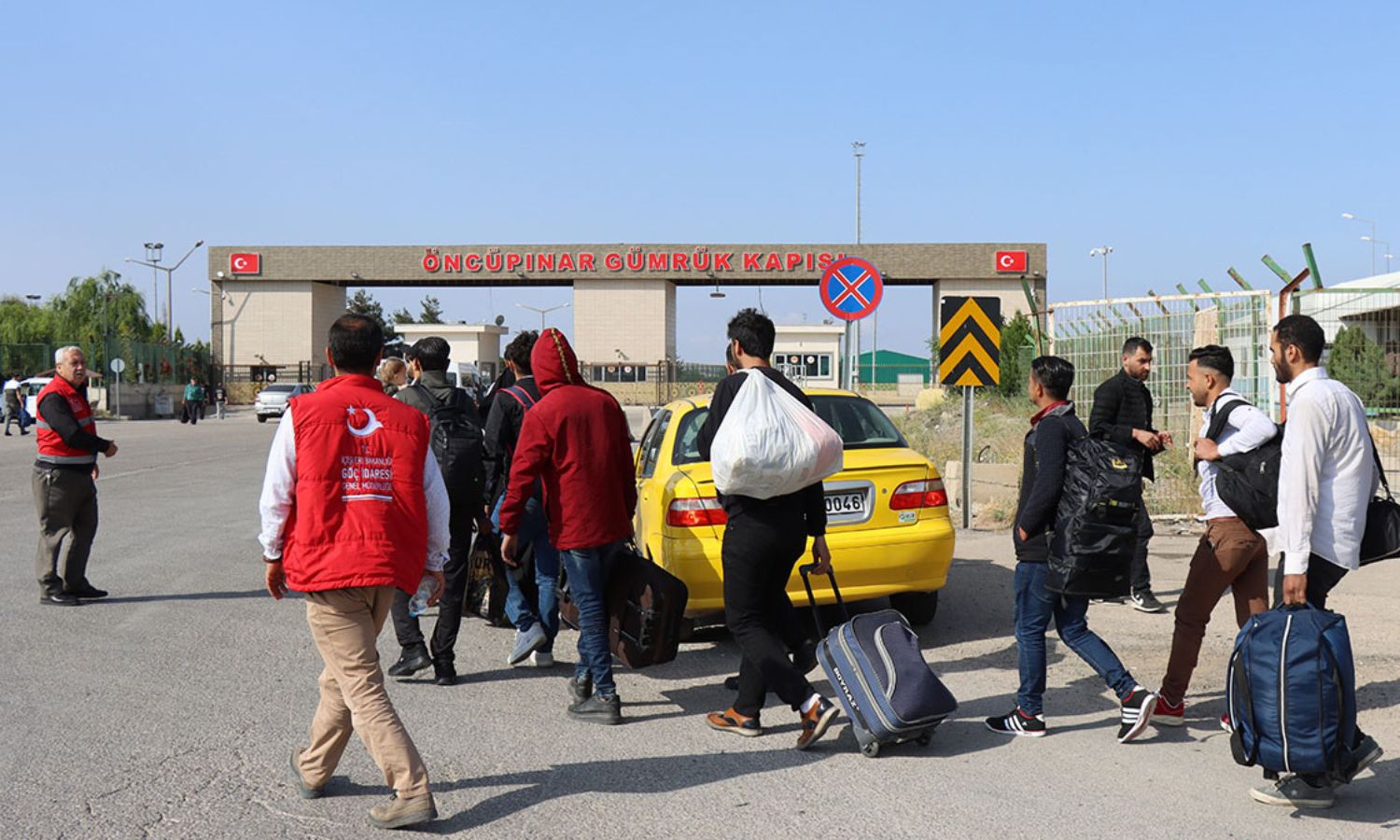
Syrians return to Syria from the Öncüpınar crossing on the Turkish side opposite the Bab al-Salama crossing on the Syrian side (Anadolu Agency)
“Temporary protection” and forced deportation
The “temporary protection” law, enacted in April 2014, includes provisions aimed at protecting refugees residing in the country and managing refugee affairs, notably the “non-refoulement” clause. However, this prominent clause has been violated repeatedly for more than two years.
More than ten years after the arrival of Syrians in Turkey under “temporary protection,” the law remains unclear, and several breaches occur which some classify as “individual errors” apart from transforming Syrian refugees into a subject of Turkish internal politics.
The first group of Syrians entered Turkey through the Yayladağı crossing in Hatay, consisting of 252 people on April 29, 2011.
Forced deportation violates the basic rights of Syrian refugees, and under customary international law, the principle of non-refoulement prohibits any host country from returning anyone to their country, whether they are an asylum seeker or a recipient of asylum, irrespective of whether they entered the host country legally or illegally.
Based on international law, the process of returning Syrian refugees to their country is a violation of international law and the 1951 Refugee Convention, which the Turkish state is a party to.
Article No. “33” of the 1951 Convention relating to the Status of Refugees states that “No contracting state shall expel or return (refouler) a refugee in any manner whatsoever to the frontiers of territories where his life or freedom would be threatened on account of his race, religion, nationality, membership of a particular social group or political opinion.”
Government directive on refugee repatriation
During the Turkish presidential elections in May 2023, notable Turkish government figures, prominently including President Recep Tayyip Erdogan, often discussed the number of Syrians who have returned or been deported from Turkey, presenting this as an accomplishment of the government in combating “illegal migration.”
Even after Erdogan’s victory in the presidential elections, he reiterated in a speech following the announcement of the results, promises of “voluntary return” of Syrians.
Discussions on “voluntary return” by decision-makers in Turkey continued even after the presidential elections, with the ministers of defense and interior frequently appearing to discuss the government’s achievements in repatriating Syrians by providing figures in this respect.
Since May 2022, Turkey has been pushing the “voluntary return” project for Syrian refugees to Syria, following statements by Erdogan, which included talk about building homes and securing shelter and livelihoods in the areas the refugees return to in northwest Syria.
Taha al-Ghazi, an activist in the field of refugee rights in Turkey, considers that the presidential and municipal elections led to restrictions on the lives of refugees, but the elections were not the main reason for these restrictions themselves.
Al-Ghazi told Enab Baladi, that the policy pursued by the Turkish government appeared “clearly and explicitly” as agreed upon by all Turkish political streams (government and opposition), focusing on the mandatory repatriation of Syrian refugees.
He added that the treatment of the refugee issue by some parties and streams with what he described as “disgusting” racism was evident in the electoral campaign launched by the Republican People’s Party (the second most popular party in Turkey), which included street banners promising the deportation of refugees, and another launched by parties and figures known for their hostility towards refugees, having the same impact on the lives of refugees in the country.
On the other hand, al-Ghazi believes that the government discourse, which may seem to an uninformed observer as supportive of the existence of refugees, was no different in content from the opposition’s discourse.
In the latest report by Human Rights Watch (HRW), in March last year, the deputy director for the Middle East at the organization, Adam Coogle, said that the “voluntary return” implemented by Turkey to “safe zones” often turns out to be a forced return fraught with risks and despair.
A more stringent policy
As the Turkish municipal election period concluded, security measures continued as normal in the Turkish streets to track down refugees in the country, the latest of which was increasing the number of “mobile migration vehicles” carried out by the Directorate of Migration in the Ministry of the Interior to 97 in Istanbul province alone, where the largest gathering of Syrians in the country resides.
Although the discussion on refugees has significantly decreased in Turkish media and through social media, the legal tightening on the life of refugees is still noticeable.
Al-Ghazi believes that Turkey, since the beginning of 2023, has adopted a more stringent policy towards refugees, which cannot be linked solely to the elections, adding that the stringent policy followed by the Presidency of Migration Management and the Turkish Ministry of the Interior has led to numerous violations experienced by Syrian refugees in deportation centers, including “forced” deportations.
He noted that the government policy itself confirms that all internal Turkish sides agree on the necessity of deporting Syrian refugees.
In May 2023, former Turkish Foreign Minister Mevlut Cavusoglu revealed a roadmap for repatriating Syrian refugees to their home country, indicating that the return of Syrian refugees was the first issue in Turkey’s negotiations with the regime mediated by Russia.
In a television interview on Habertürk channel, the minister spoke about the need to ensure “safe return” conditions, mentioning ongoing negotiations with the Syrian regime government to secure the necessary infrastructure for the return of refugees.
Activist Taha al-Ghazi brought up the speech of the former Turkish Foreign Minister to indicate that Turkey had previously announced its engagement in negotiations aimed at deporting refugees, as the minister had previously announced Turkey’s engagement with Iraq, Lebanon, and Jordan in a plan to repatriate refugees by mid-2023.
He considered that the tightening and “forced” deportation of some refugees has become a government orientation, more so than a legal context.

A Syrian refugee in Turkey holds the temporary protection card (kimlik) 2023 (Enab Baladi/Abdul Moeen Homs)
Narrowing down beyond elections
The issue of travel permits required by Turkey for refugees wishing to travel to other Turkish cities than the ones they are registered in, even for vacations or family visits, is always prominent among the problems faced by Syrians in Turkey. Requests for permits for provinces like Ankara and Istanbul are often denied.
Since 2016, Syrians in Turkey have been prohibited from leaving their registered provinces or residing in other provinces without a travel permit issued by the Turkish Presidency of Migration Management. Meanwhile, those who have tourist residency can freely move between Turkish provinces without needing a travel permit.
This law has prompted many Syrians to shift their status in Turkey from being refugees under temporary protection to obtaining tourist residency for those who legally and financially can, falling into the pitfalls of the residency renewal system and often facing rejection for their renewal applications.
In addition to the travel permit issue, Syrians are not allowed to reside in neighborhoods of their choice even within their registered provinces. The Turkish Immigration Department had previously imposed a plan called “Easing the Pressure” which left refugees vulnerable to exploitation by landlords, forcing some to live far from their workplaces, while others pay multiple times their home rent due to the lack of options to move to another area.
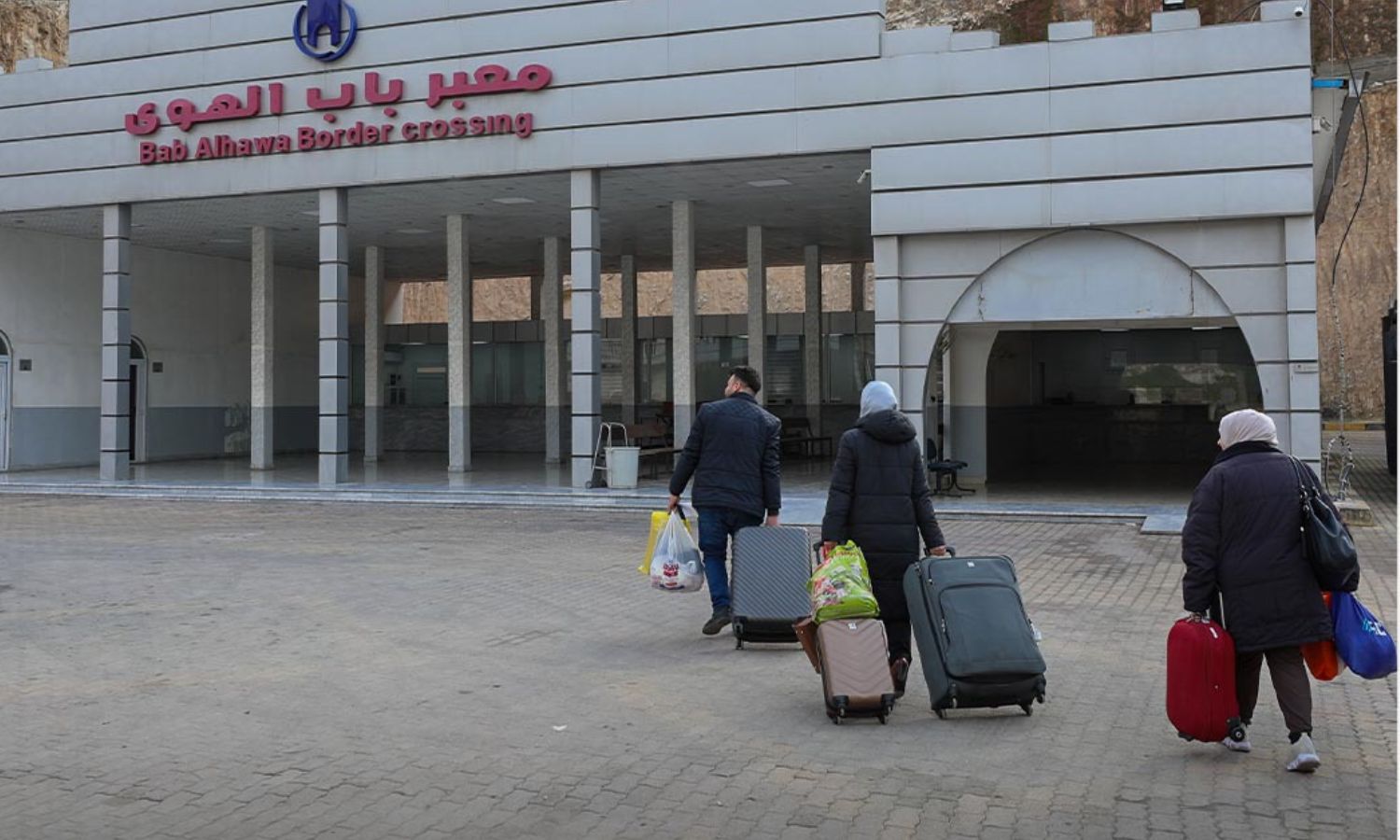
Northern Syrian crossings receive deportees from Turkey and “voluntary returnees” on a daily basis – February 11, 2024 (Bab al-Hawa crossing)
Turkey’s obligations in the refugee file
Turkey has numerous commitments based on international agreements with the European Union regarding the refugee file, including preventing refugees from crossing into Greece, which serves as a gateway to Europe. Financial support is also part of the agreements that Turkey receives in return for upholding the initial deal.
While Europe obliges countries like Lebanon to maintain the status quo of Syrian refugees, it has not openly intervened concerning the forced deportations of refugees from Turkey, with denunciations of this behavior limited to human rights and legal organizations.
The Syrian human rights activist and director of Syrians for Truth and Justice (STJ), Bassam al-Ahmad, stated to Enab Baladi that purely political reasons prevented the European Union from intervening in violations committed against refugees in Turkey and the deportations to conflict zones.
Al-Ahmad added that the commitment of Europe to an agreement with Turkey to prevent the influx of refugees towards it, and Turkey’s use of refugees against EU states, prevented the latter from intervening in the deportations from Turkey to Syria.
He noted that the EU’s distancing itself from the refugee issue in Turkey, and its involvement in other countries, could be reflected on the human rights organizations working in this field, as well as the Syrian opposition, with statements and condemnations in Lebanon’s events being frequent, while absent when similar events occur in Turkey.
He sees that the EU is “complicit” with Turkey in the “forced” deportations, as it does not intervene in this matter politically.
He views that Turkey deals with the figures of Syrians within two tracks; one internal related to pleasing the Turkish public affected by the rhetoric, portraying that at least a million Syrians returned to their country in the past two years, and the other international, where the numbers do not decrease when Turkey seeks assistance from Europe for the refugee file.
Turkey provides official numbers about the Syrians it hosts, which often contradict those available on the website of the Turkish Presidency of Migration Management.
Turkish President Erdogan repeats that his country has repatriated over a million Syrians to the “safe zone,” anticipating an increase in refugee returns to Syria with the advance of the brick house building project supported by Qatar in northern Syria.
Syrian refugees in Turkey
There are 3,118,499 Syrian refugees residing in Turkey, according to the latest statistics from the Turkish Presidency of Migration Management.
As of May 2022, 3,763,447 Syrian refugees resided in Turkey.
Ankara is obliged.. but it ignores
On March 20, 2016, Turkey signed an agreement with Europe aimed at curbing the flow of refugees towards the latter, including conditions of resettling one Syrian refugee in the European Union for every Syrian returned to Turkey from the Greek islands.
Turkey also assumes the responsibility to control land and sea routes and their security to keep irregular migrants from reaching Europe.
The European Union committed to providing financial aid worth six billion euros by 2018 to the Turkish government to fund projects for Syrian refugees, which was later extended.
While Europe often overlooked the condition about resettling Syrians from Turkey to its territories in exchange for those deported from the Greek islands, Turkey reduced border restrictions with Greece from 2020 onwards.
Moreover, Turkey is a party to international agreements that discuss not deporting refugees to conflict zones, which Turkey has ignored for years.
The Syrian lawyer Bassam al-Ahmad stated that Turkey is obliged by these agreements to maintain a stable condition for Syrians within its territory and not to deport them forcibly, especially towards areas considered unsafe. However, the main issue in Turkey is “politicizing the refugee file” by Turkish parties, particularly the ruling Justice and Development Party (AK Party).
According to international and UN classifications, Syria is deemed unsafe for returning refugees, a classification shared by various international human rights organizations for the entire Syrian geography apart from the areas of influence and control.
While the United Nations, Britain, United States, and the European Union have all considered all Syrian cities unsafe, Turkey insists on considering its areas of influence in northern Syria as safe, officially referring to them as the “safe zone.”
What role does the Syrian opposition play?
Whenever a Syrian refugee faces violations in Turkey, attention turns to the Syrian opposition institutions, led by the National Coalition of Syrian Revolutionary and Opposition Forces (Syrian National Coalition) responsible for addressing issues and protecting the rights of Syrians based on the law and relations with the Turkish side.
Over the past few years, the results from opposition institutions and figures in protecting the rights of Syrian refugees have been insubstantial. These organizations have neither become a platform defending them nor followed up on their affairs adequately, despite the existence of the Syrian-Turkish Joint Committee affiliated with the Syrian National Coalition, whose efforts seem timid against the magnitude of violations against Syrians.
Rights activists and defenders try to defend the Syrians, relay their voices through media, or form public opinions based on their relations in Turkish organizations or decision-making circles. Syrian projects have also been active in solving the legal problems faced by Syrian refugees in Turkey.
Ahmad Bakoura, the coordinator of the refugee and displaced persons group in the Syrian National Coalition, told Enab Baladi that the Coalition is working “intensively” with Turkish authorities, international organizations, and civil society to ensure the protection of the rights of Syrians residing in Turkey.
Bakoura explained that the efforts of the Coalition are not limited to the Syrian-Turkish Joint Committee alone, but there is also cooperation with the executive and legislative branches, in addition to working with the Turkish parliament and committees specialized in human rights and refugees.
Bakoura added that several challenges face the Coalition in defending the rights of Syrian refugees, including political and public discourse against refugees, and the difficulties in coordinating between various parties. However, efforts continue to protect the rights and dignity of Syrian refugees in Turkey and other asylum countries.
Bakoura believes that using the refugee issue as a “political tool” in electoral campaigns has exacerbated problems and social tensions, putting refugees in a difficult position and increasing their suffering. In contrast, he considers, the public stance was relatively opposing, with the street clearly rejecting the rhetoric of the Turkish parties and their campaigns that used a “hostile discourse” against refugees.
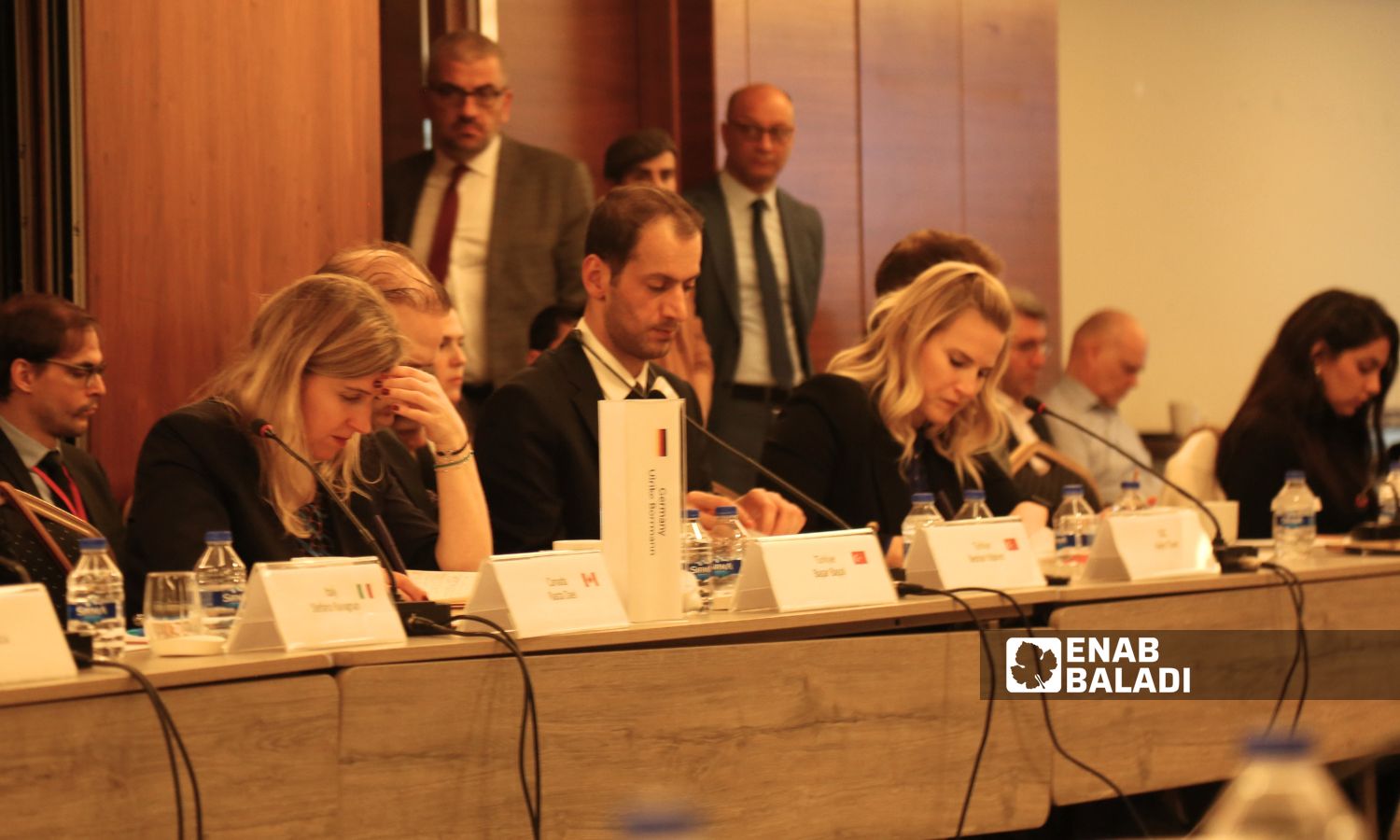
Representatives of European countries during a meeting with the Syrian Negotiation Commission in Istanbul – March 8, 2024 (Enab Baladi)
No numbers for returnees from northern Syria
The process of returning deportees from northern Syria to Turkey is overseen by the Syrian-Turkish Joint Committee in several complicated steps, seen as ineffective by returnees, consuming time, requiring new procedures, and involving them in a whirlwind of paperwork.
The first step involves filing an application at the Syrian National Coalition office in the town of Azaz in northern Aleppo countryside, followed by a precise evaluation of each case to confirm its eligibility for temporary protection under Turkish law. Following that, they are asked to head to the Syrian-Turkish border to process their entry.
Once in Turkey, individuals are granted a temporary document valid for completing their situation review with the Turkish immigration department in the city where they reside to obtain the temporary protection card (kimlik), a process marked by complexity and prolonged durations.
Bakoura mentioned that the duration of the process is lengthy due to its management with multiple Turkish institutions, especially security agencies, to review the reasons for deportation and all case details before allowing a return.
Bakoura did not provide an accurate number of deportees whose situations were resolved and returned to Turkey by the Syrian-Turkish Joint Committee, merely stating that the numbers are modest, considering it as a step toward achieving justice and respecting human rights, with promises to expand efforts in this context.
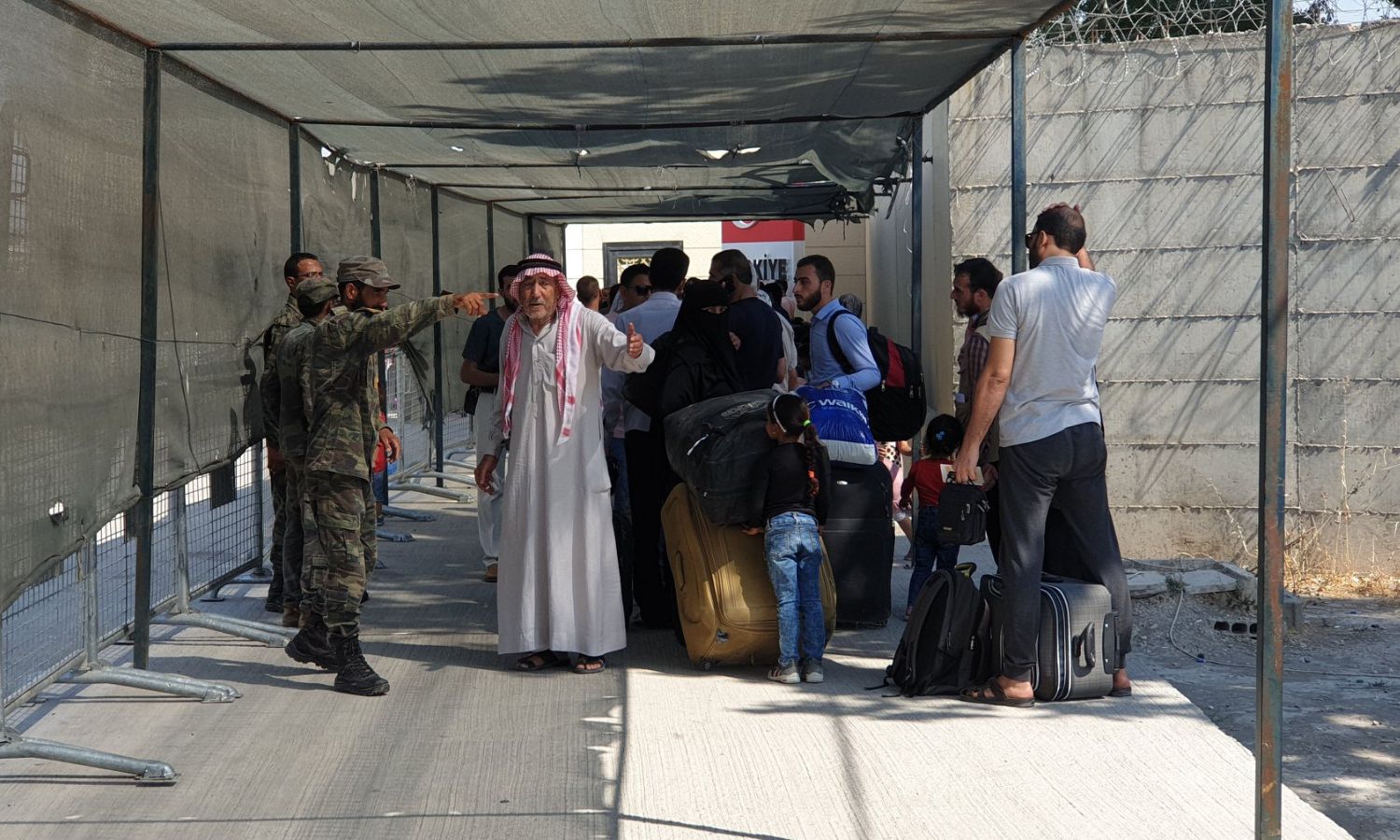
Travelers and elements of the Syrian National Army (SNA) at the Syrian-Turkish border crossing of Jarablus – August 2019 (Jarablus crossing/Facebook)
No entity defends the refugees
With refugees facing legal problems for years, the question remains why a Syrian legal entity was not established to protect them and defend their cases after more than 13 years of their presence in Turkey.
Kinda Hawasli, a researcher at the Syrian Dialogue Center, attributed the inability of Syrians to establish an entity that defends their rights in Turkey to various reasons, primarily because the experience of refugees is relatively new, especially since they lack knowledge and understanding of asylum laws and procedures.
Hawasli told Enab Baladi that the past years have seen an “exhaustion of efforts,” due to ongoing events and disasters, focusing the attention of the opposition, civil society organizations, and activists towards the internal affairs of Syria, rendering the refugee issue secondary.
She added that reduced funding and lack of donor interest in supporting activities for refugee protection or establishing entities to defend them have played a role in confining the work within individual voluntary efforts.
“Experiencing the establishment of legal entities and rights associations is new to the Syrian people, as a state of legal awareness has emerged in recent years due to the overwhelming need for legal action to defend their rights,” said Hawasli.
Ghazwan Kurunful, a Syrian lawyer, attributes the inability of Syrians to establish an entity that defends their rights in Turkey to several reasons, including the absence of financial and human resources to organize this entity.
In previous statements to Enab Baladi, he mentioned that 97% of the members of the Syrian Legal Platform in Turkey are originally under temporary protection and are not in a position to jeopardize their status with positions or statements that may be perceived as antagonistic to the Turkish state, thereby also risking deportation to northwest Syria.
Factors for successful refugee protection
Understanding asylum laws or human rights law is crucial for a Syrian refugee in Turkey or entities working to defend their rights, to know what constitutes a legal violation and what is considered a normal action not violating the legal provisions.
Hawasli listed three factors influencing the success of Syrian entities concerned with protecting refugees in Turkey:
- Lack of awareness about asylum laws, as information is not sufficiently available to refugees, activists, or those in charge of human rights organizations.
- Dealing with refugee issues with emotional and reactionary politics by Syrian institutions over the years, which may appeal to the other party without moving them to make a decision that does not serve their interests, instead, decision-makers should be approached and convinced that current steps are harmful by presenting data and facts to rely on, and showing proposals that support the interests of refugees and authorities simultaneously.
- Enhancing the role of institutions concerned with protecting refugee rights lies in creating networks with various concerned entities, Turkish and otherwise.
if you think the article contain wrong information or you have additional details Send Correction
النسخة العربية من المقال
-
Follow us :












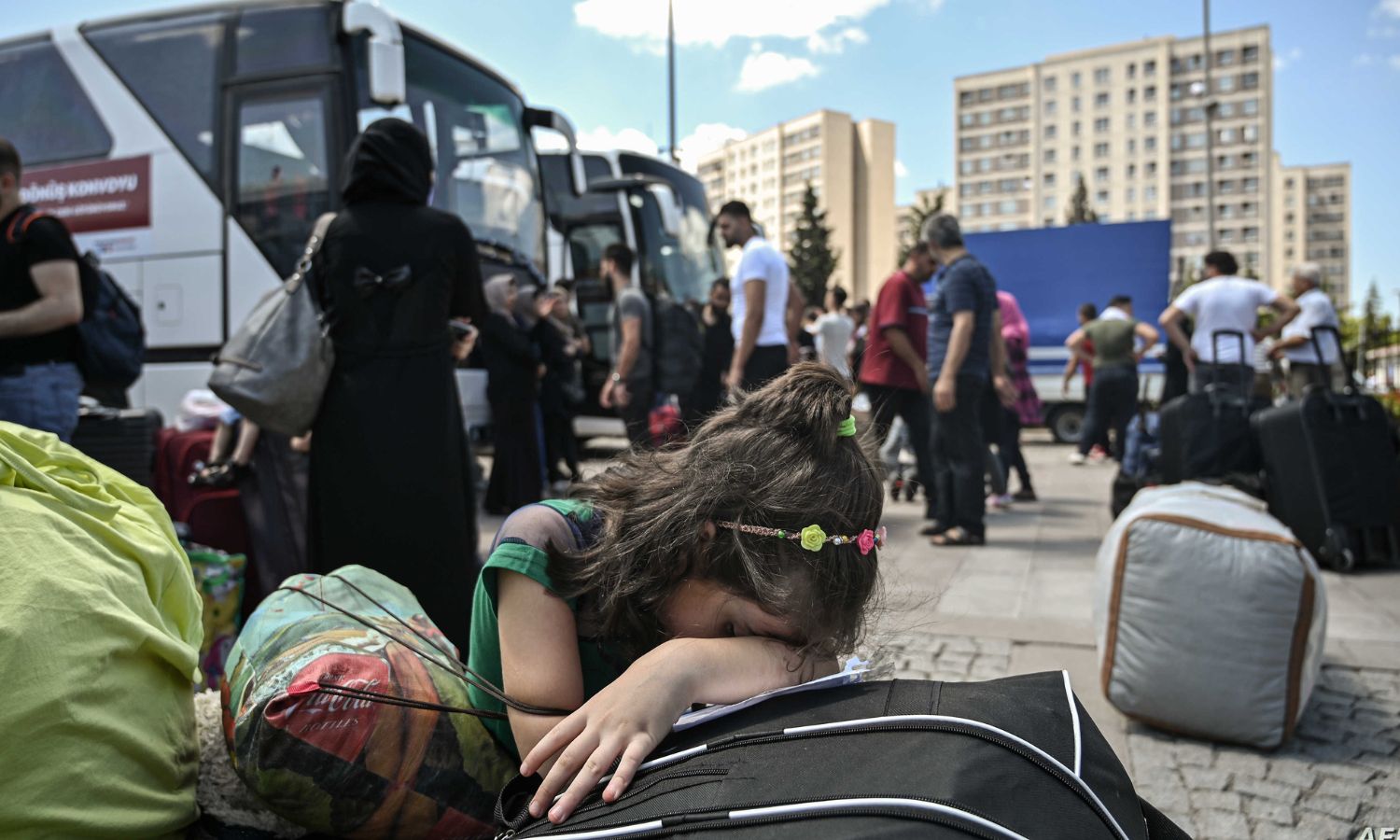
 A Syrian girl cries while other Syrians are preparing to board buses in Istanbul to return to Syria - August 19, 2019 (AFP)
A Syrian girl cries while other Syrians are preparing to board buses in Istanbul to return to Syria - August 19, 2019 (AFP)





 A
A
A
A
A
A
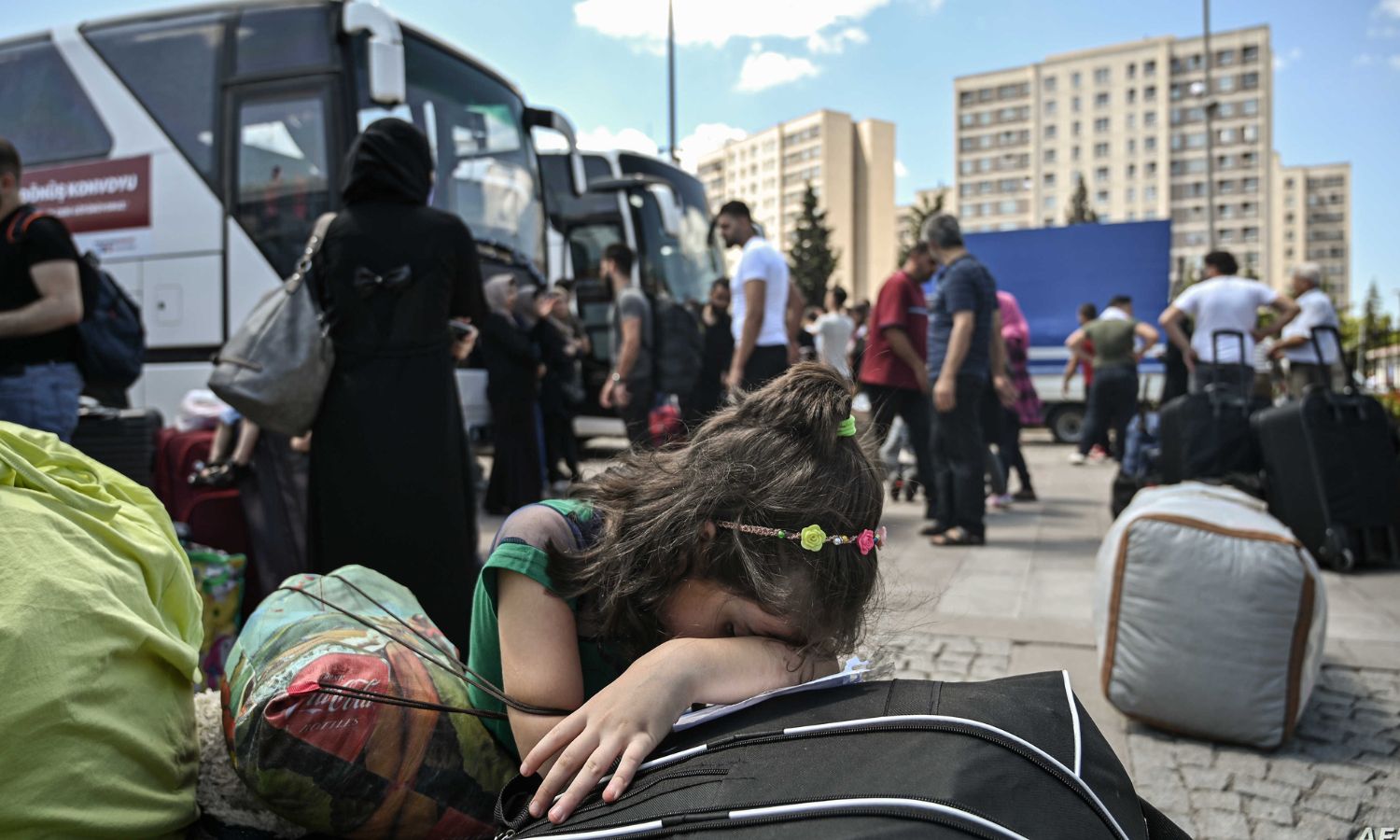
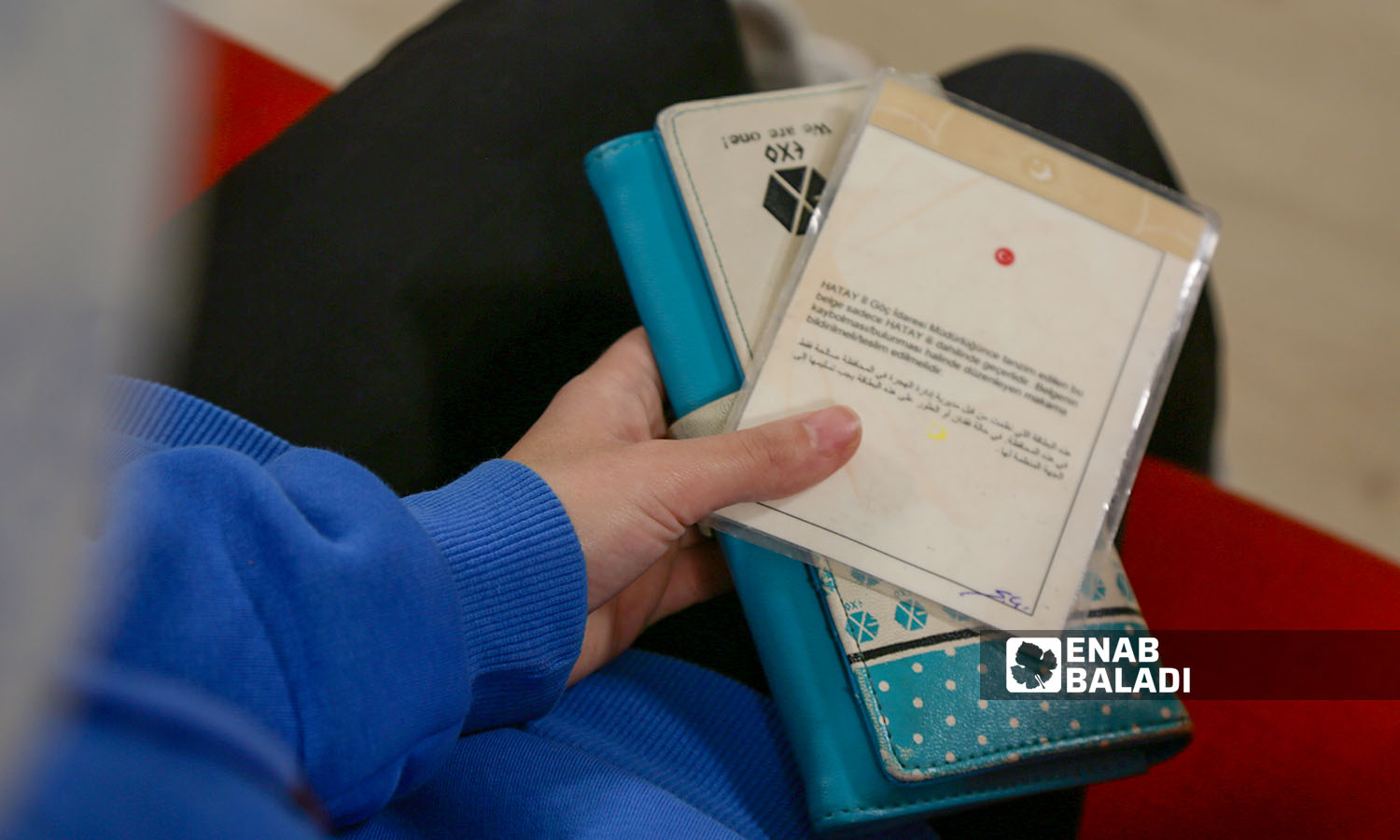


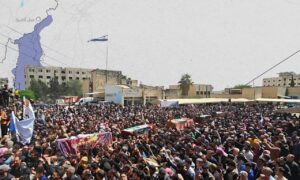




 More In-Depth
More In-Depth